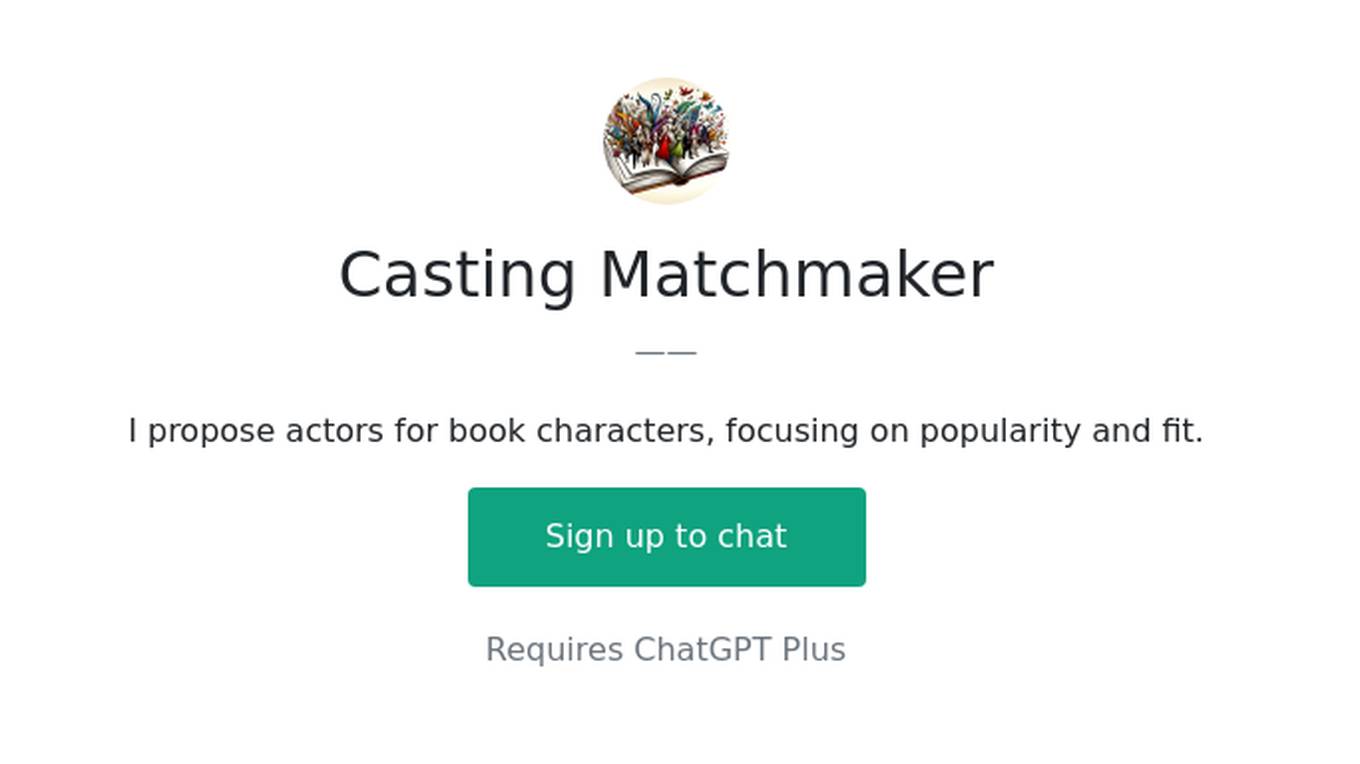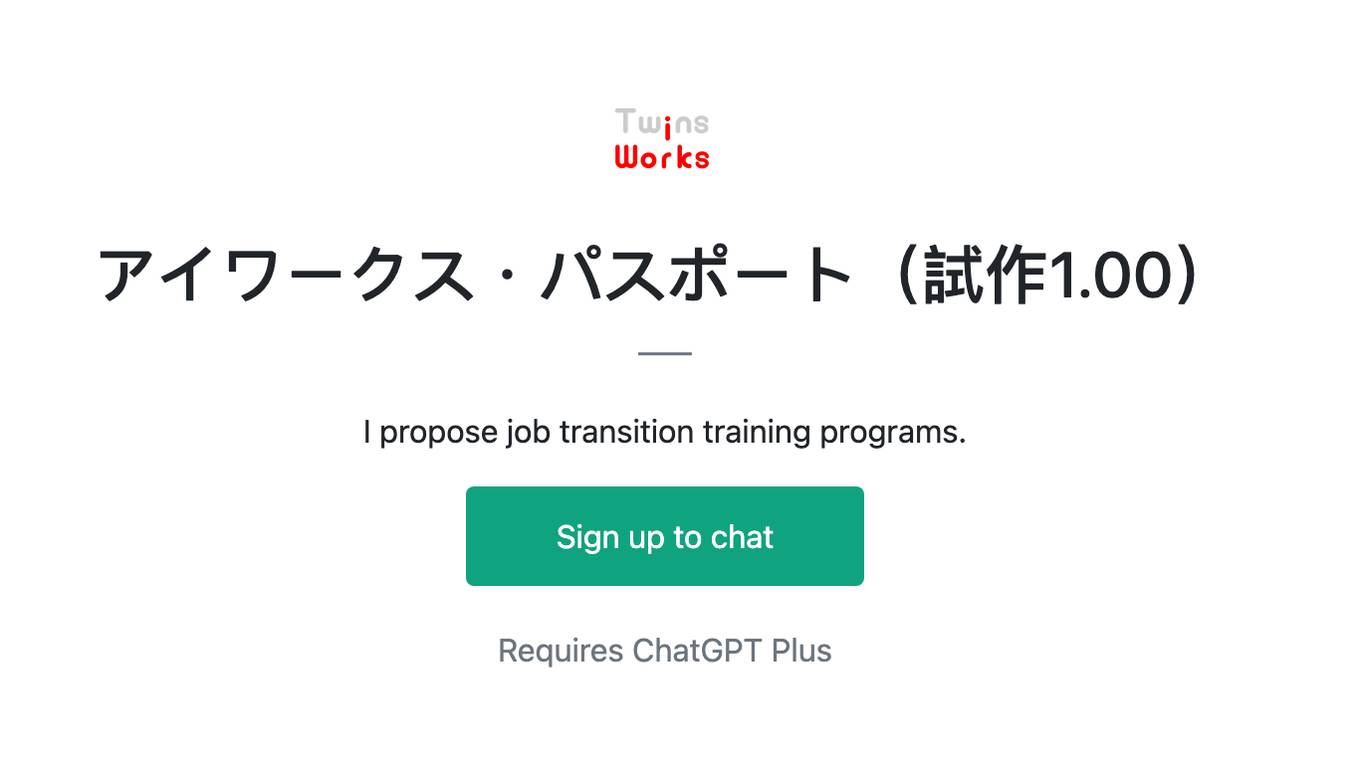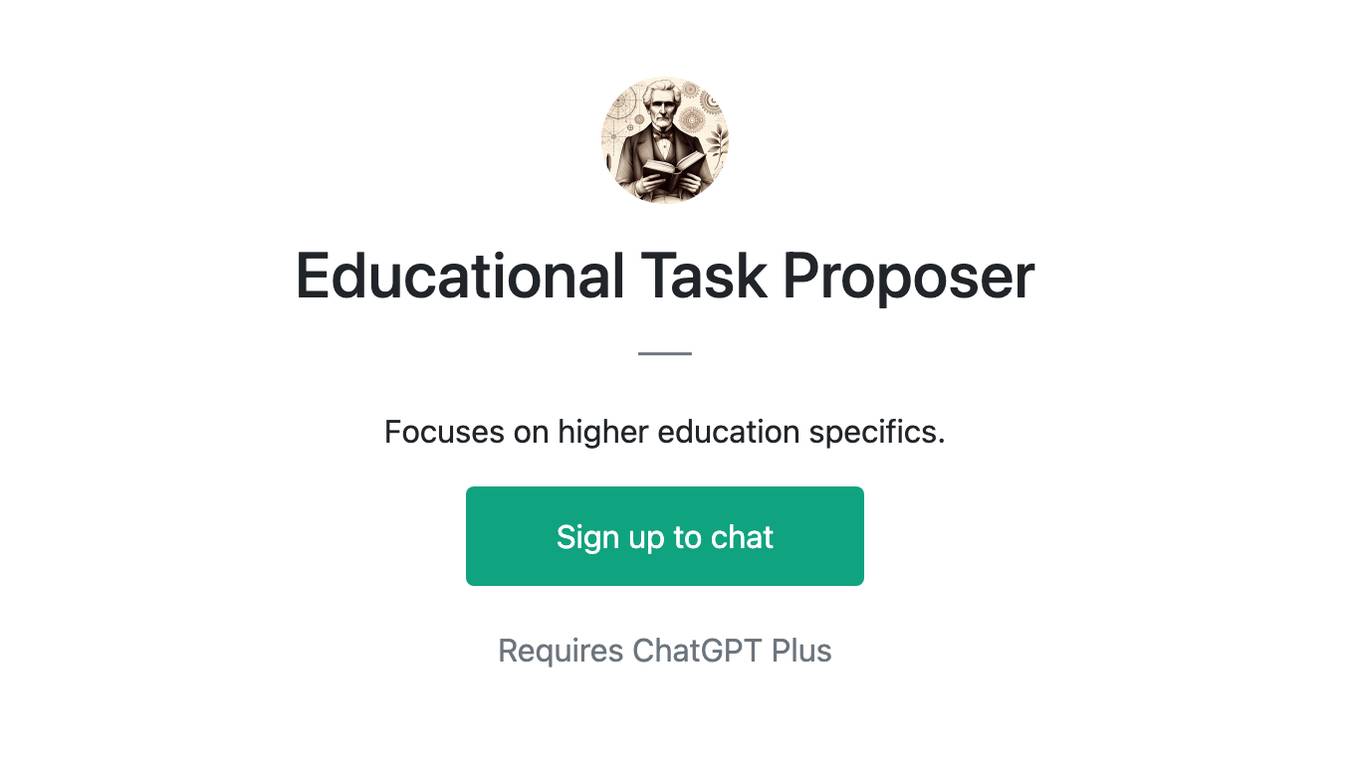Best AI tools for< Propose Phrasing >
10 - AI tool Sites
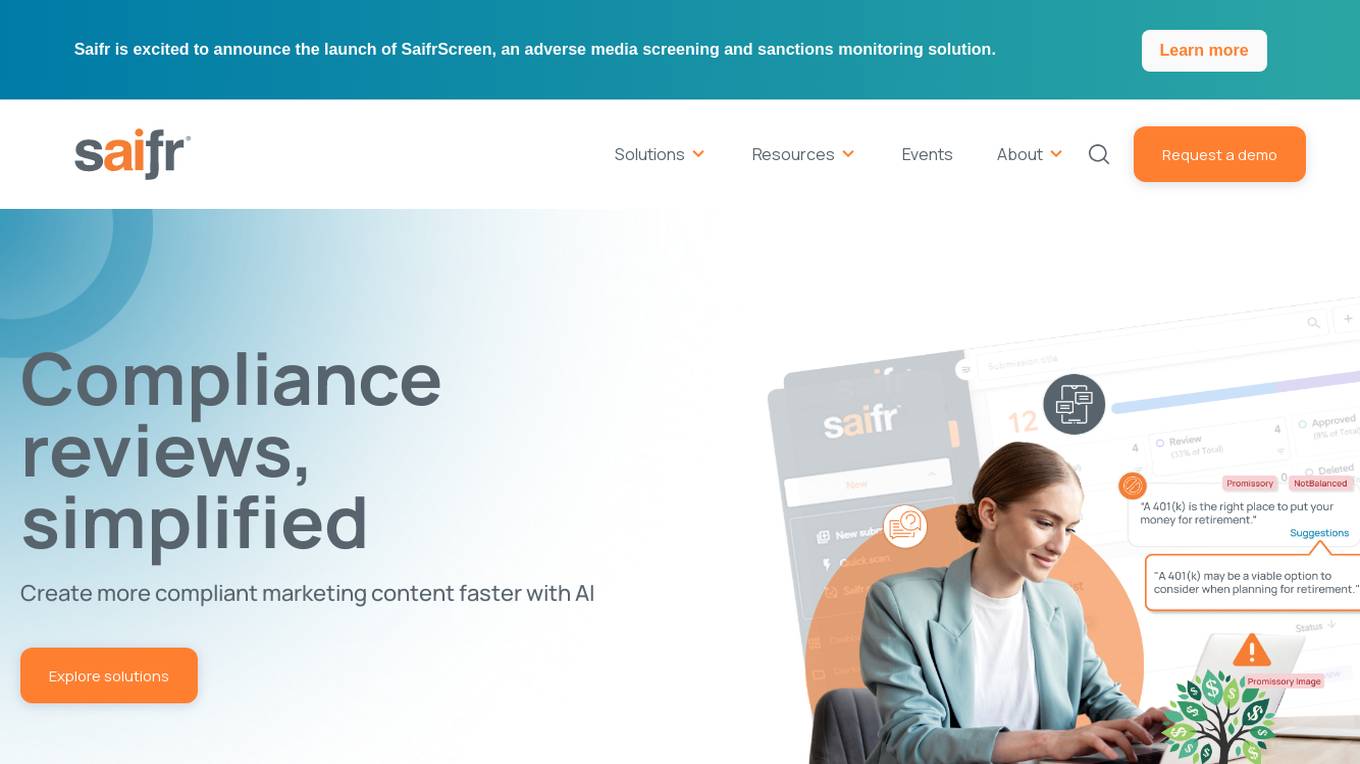
Saifr
Saifr is an AI-powered marketing compliance solution that simplifies compliance reviews and content creation processes. With accurate data and decades of insights, Saifr's AI technology helps users identify compliance risks, propose alternative phrasing, and streamline compliance workflows. The platform aims to enhance operational efficiency, safeguard against risks, and make compliance reviews more efficient for users to focus on creative work.
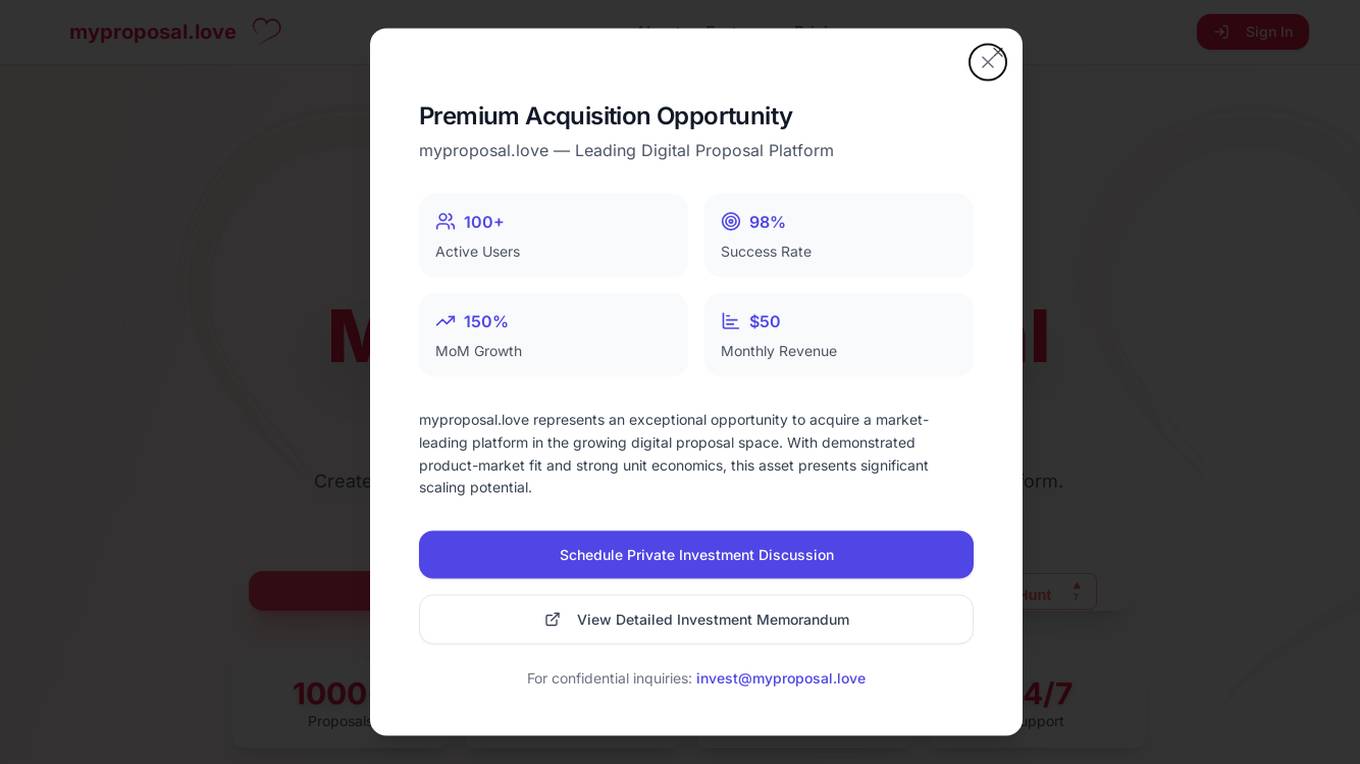
MyProposal.Love
MyProposal.Love is an AI-powered proposal generator that helps users create the perfect marriage and Valentine's proposals. The website offers a range of features to assist in crafting unforgettable moments, including romantic proposal ideas, success stories, proposal tips, and a special Valentine's section. With the help of AI technology, users can receive personalized suggestions to make their proposal moment truly special. MyProposal.Love aims to make the process of proposing more creative and memorable for couples seeking to take the next step in their relationship.
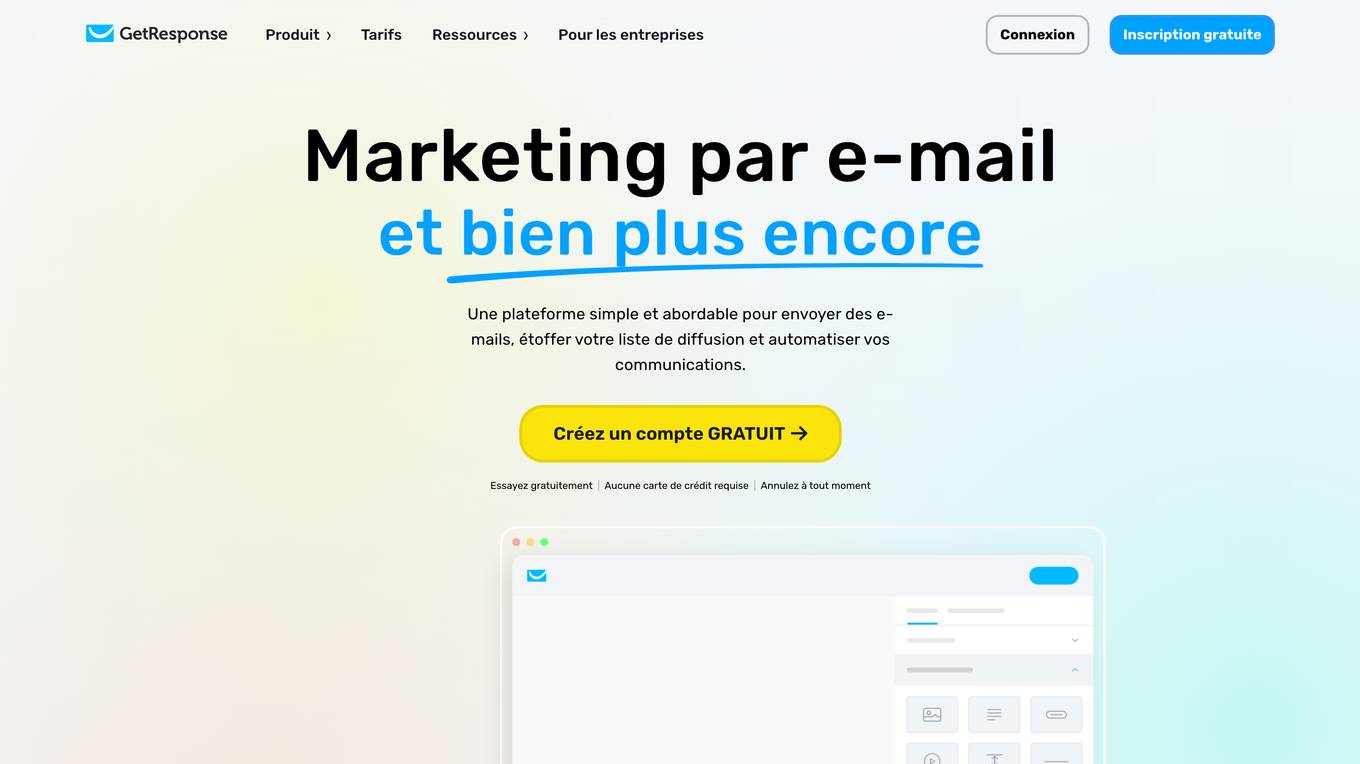
GetResponse
GetResponse is an email marketing and marketing automation platform that helps businesses of all sizes grow their audience, engage with customers, and drive sales. With a suite of powerful tools, including email marketing, landing pages, forms, and automation, GetResponse makes it easy to create and execute effective marketing campaigns. GetResponse also offers a range of integrations with other business tools, making it easy to connect your marketing efforts with your CRM, e-commerce platform, and more.
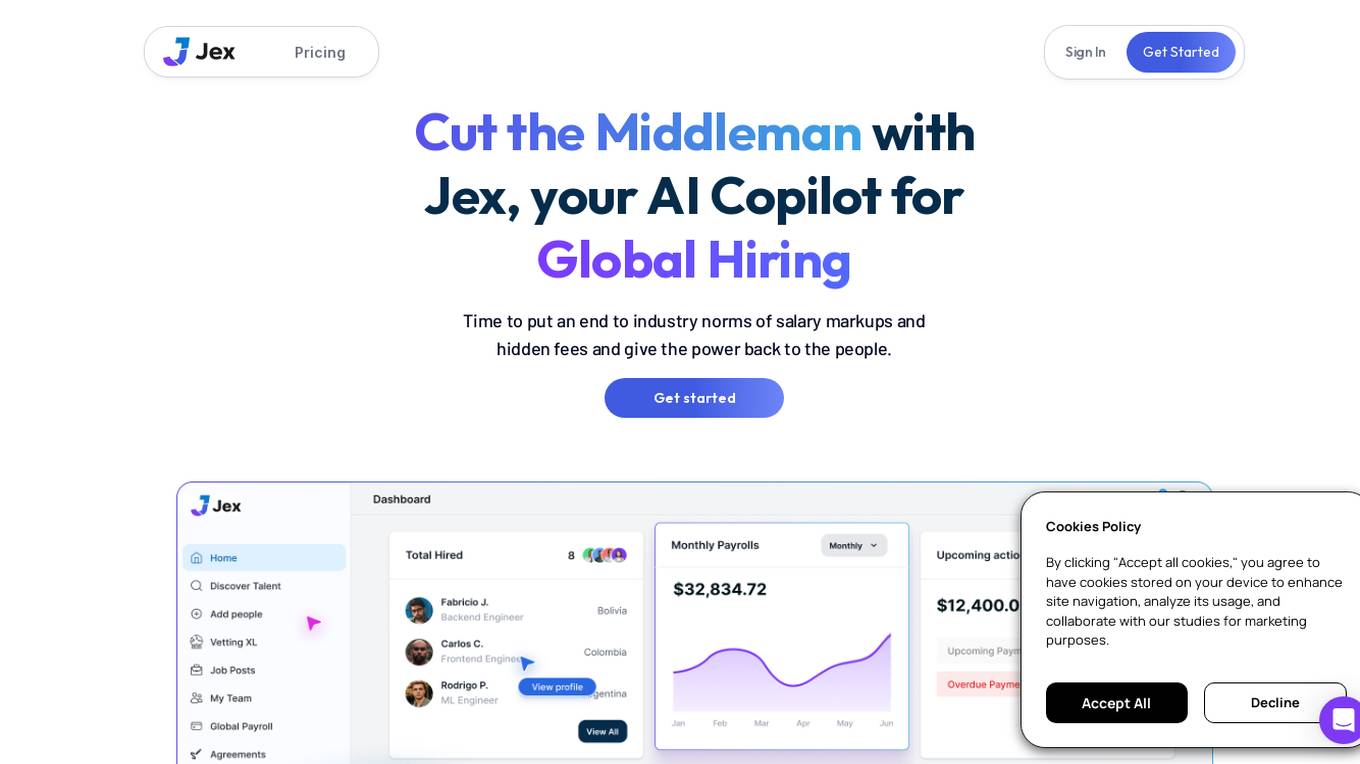
Jex
Jex is an AI-driven platform that revolutionizes global hiring by cutting out middlemen and providing transparency and efficiency in the recruitment process. It empowers both talent and companies to connect directly, eliminating salary markups and hidden fees. Jex offers dynamic candidate profiles, AI-driven insights, compliance management, and payroll services, streamlining the hiring workflow and saving time and money for users.
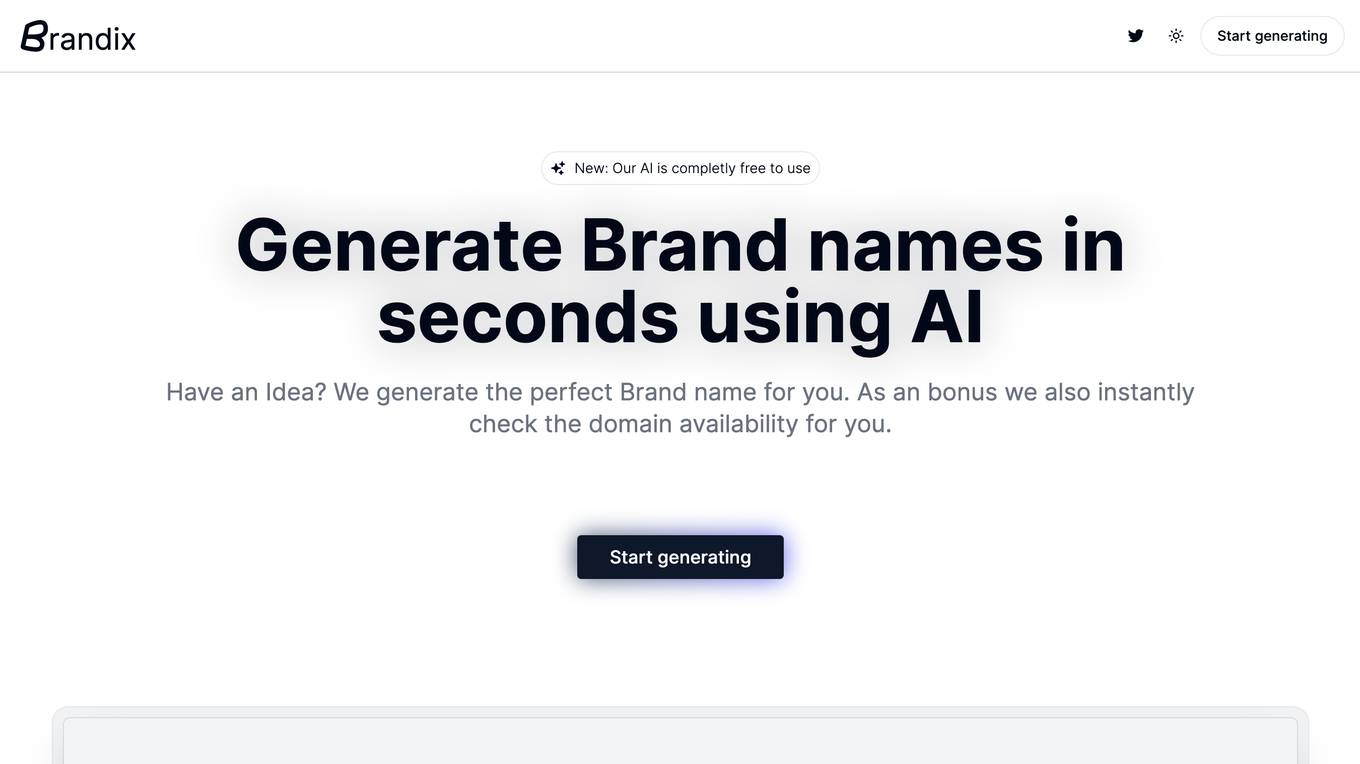
Brandix
Brandix is an AI-powered brand naming assistant that helps users generate creative and catchy names for their brands. The tool utilizes artificial intelligence to capture the vision and essence of a brand, providing suggestions for startup names, fintech app names, and open-source tool names. With Brandix, users can streamline the brand naming process and access a wide range of innovative name ideas tailored to their specific needs.

Kroma
Kroma is an AI-powered platform that offers expert PowerPoint slides for businesses and startups. It provides smart templates, AI features, and expert content to help users create persuasive pitches, showcase ideas, present data, and propose B2B services. With Kroma, users can easily create eye-catching charts and graphs, access a wide range of creative assets, and utilize data visualization tools to enhance their presentations.
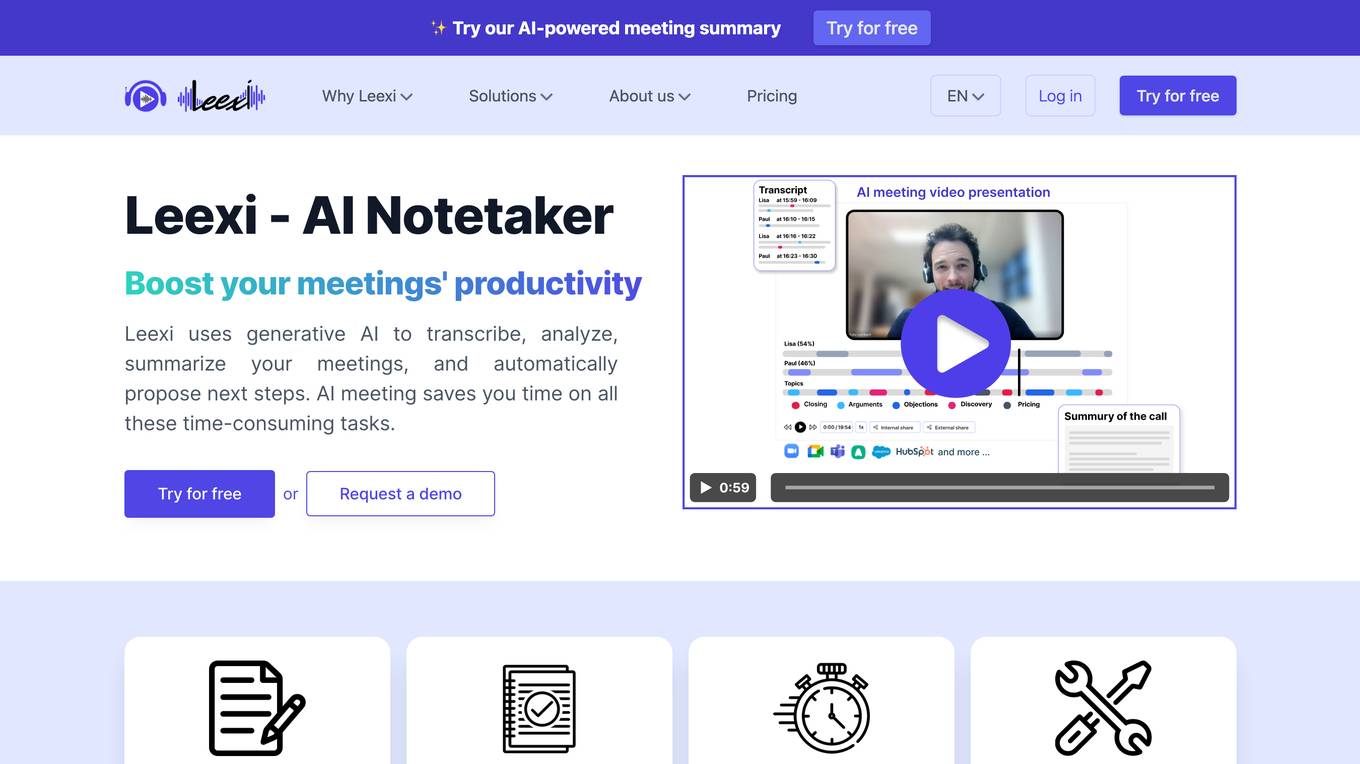
Leexi
Leexi is an AI-powered meeting tool that helps users transcribe, analyze, and summarize calls and meetings. It uses generative AI to automate note-taking, report writing, and propose next steps, saving users time and improving productivity. Leexi offers features such as automated note-taking, tailored summaries, time-saving capabilities, express setup, facilitated collaboration, contextualized call summaries, and in-depth analysis. The application is suitable for various industries and professions, including sales, consulting, customer success, recruitment, finance, journalism, marketing, and real estate.
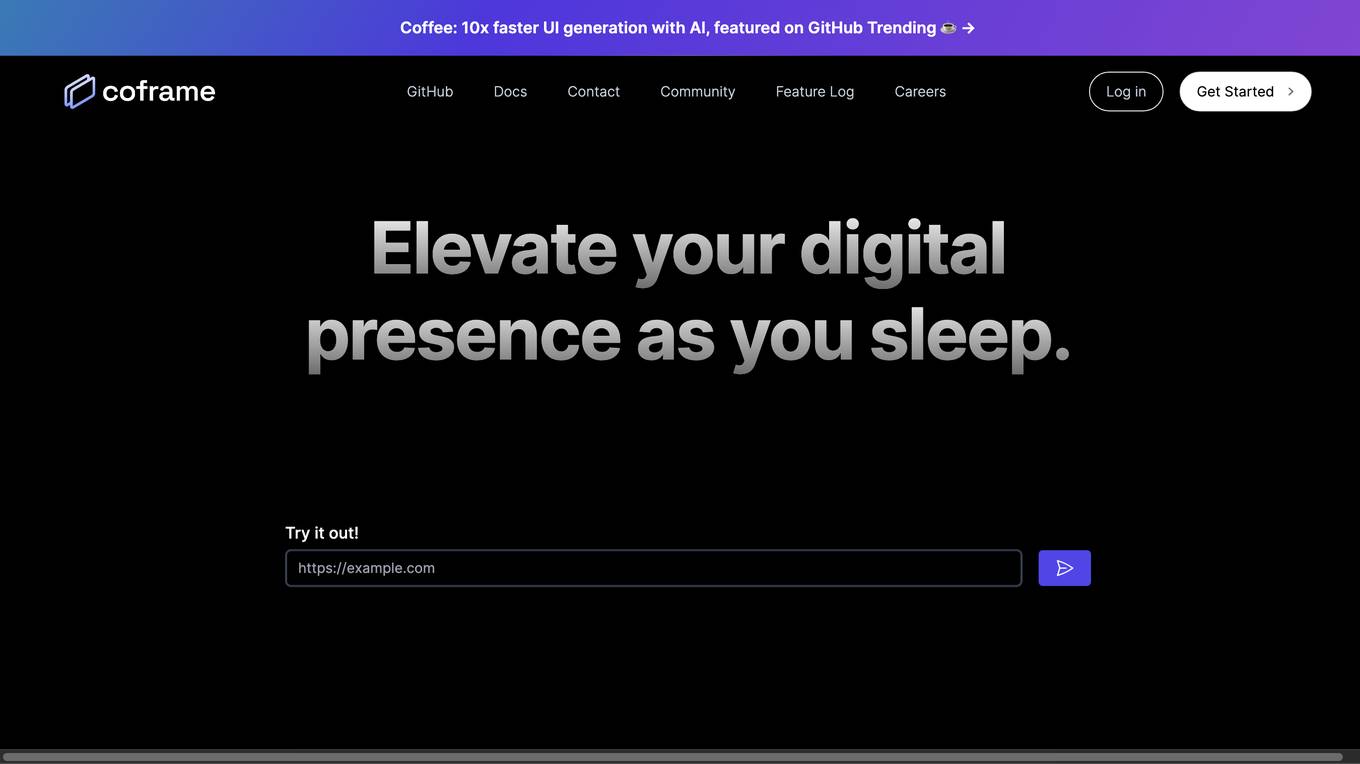
Coframe
Coframe is an AI-powered tool designed to automate website growth 24/7. It offers features such as Ad-To-Page Optimization, UI Code Generation, Segmentation and Personalization, and more. Coframe continuously learns from data to propose and test variations for digital experiences, providing substantial lift within days. It is built for enterprise marketing teams, ensuring brand alignment and scalability. The tool is recognized for its impact on visits to victories, cross-channel alignment, personalization, scalability, and visibility.
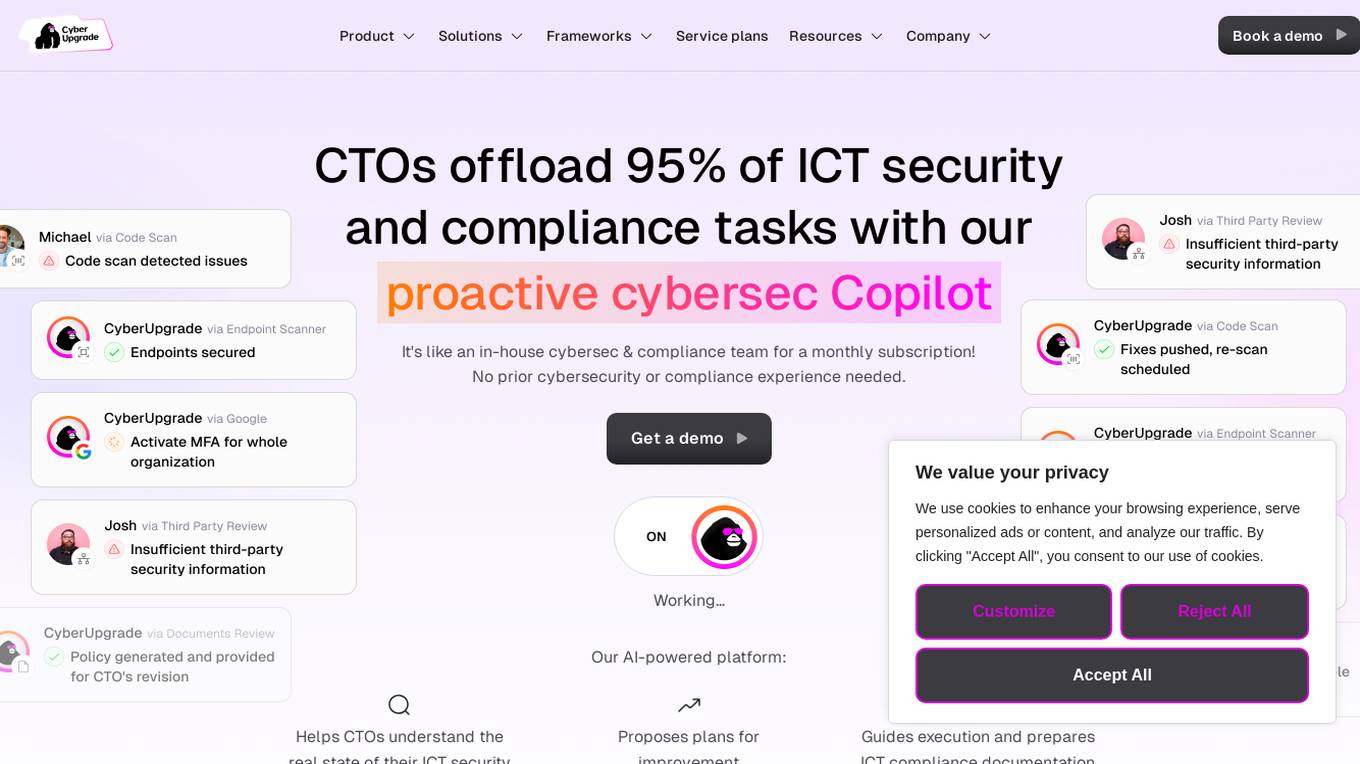
CyberUpgrade
CyberUpgrade.net is an AI-powered platform that offers comprehensive cybersecurity and compliance solutions for organizations of all sizes. It provides automated compliance, risk management, vendor risk assessment, policy management, audit management, and 24/7 security support. The platform features a cloud vulnerability scanner, security awareness training, pentesting, business continuity planning, disaster recovery planning, and an AI-powered assistant for seamless security support. CyberUpgrade helps CTOs understand their organization's security status, proposes improvement plans, guides execution, and prepares compliance documentation with a push of a button. It engages every employee individually for evidence collection and situation analysis, ensuring real cybersecurity measures are in place.
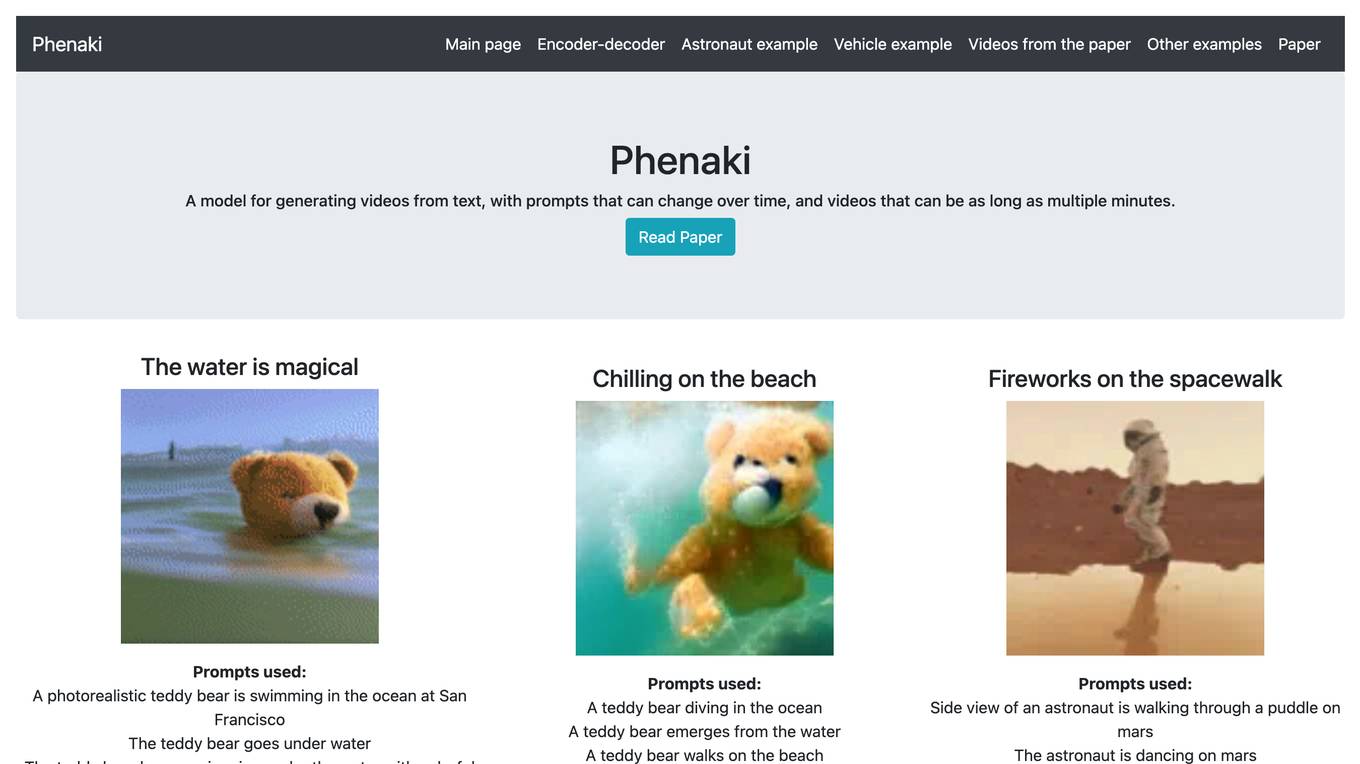
Phenaki
Phenaki is a model capable of generating realistic videos from a sequence of textual prompts. It is particularly challenging to generate videos from text due to the computational cost, limited quantities of high-quality text-video data, and variable length of videos. To address these issues, Phenaki introduces a new causal model for learning video representation, which compresses the video to a small representation of discrete tokens. This tokenizer uses causal attention in time, which allows it to work with variable-length videos. To generate video tokens from text, Phenaki uses a bidirectional masked transformer conditioned on pre-computed text tokens. The generated video tokens are subsequently de-tokenized to create the actual video. To address data issues, Phenaki demonstrates how joint training on a large corpus of image-text pairs as well as a smaller number of video-text examples can result in generalization beyond what is available in the video datasets. Compared to previous video generation methods, Phenaki can generate arbitrarily long videos conditioned on a sequence of prompts (i.e., time-variable text or a story) in an open domain. To the best of our knowledge, this is the first time a paper studies generating videos from time-variable prompts. In addition, the proposed video encoder-decoder outperforms all per-frame baselines currently used in the literature in terms of spatio-temporal quality and the number of tokens per video.
0 - Open Source AI Tools
12 - OpenAI Gpts

Guide du Portugal
Expert sur le Portugal dans toutes les langues. Service proposé par Portugal.fr
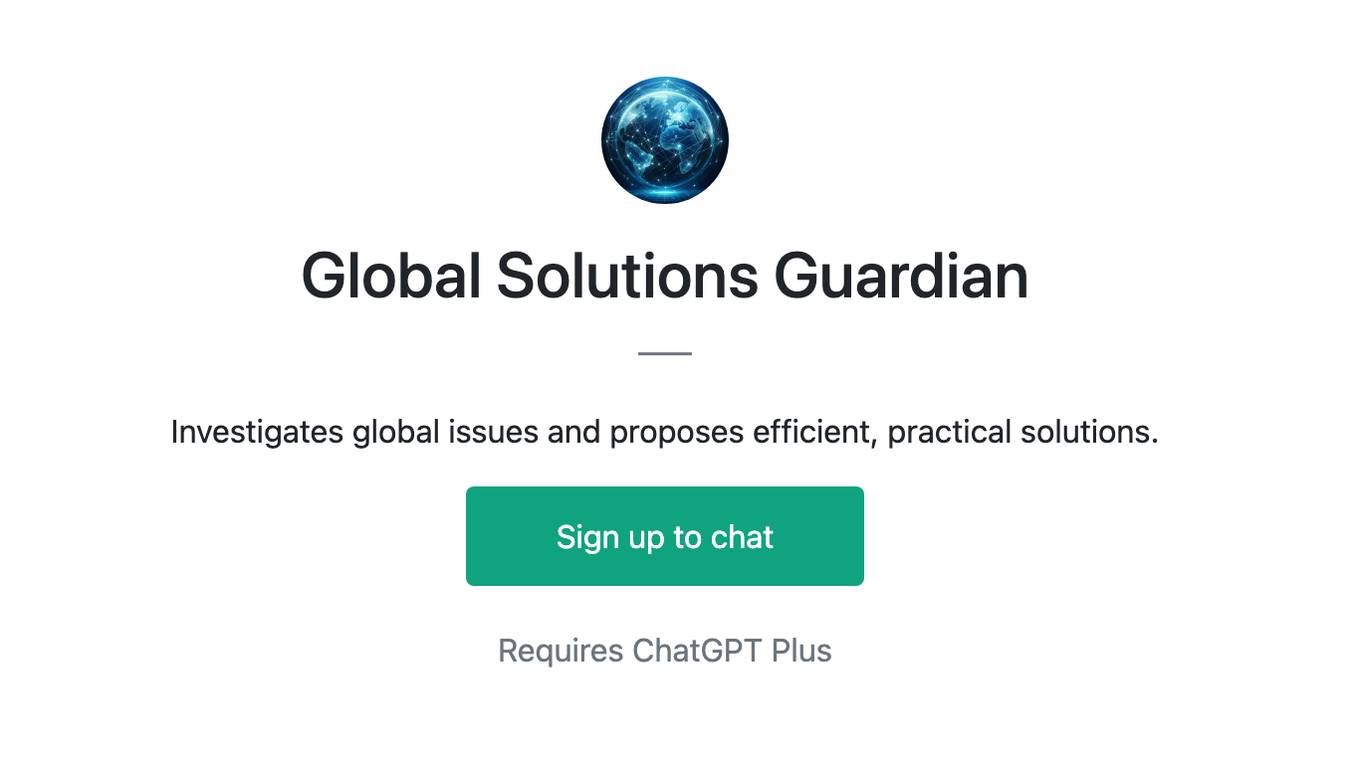
Global Solutions Guardian
Investigates global issues and proposes efficient, practical solutions.

ReporterGourmet
Ti suggerisce dove andare a pranzo o a cena, e ti propone una scelta di experience esclusive.
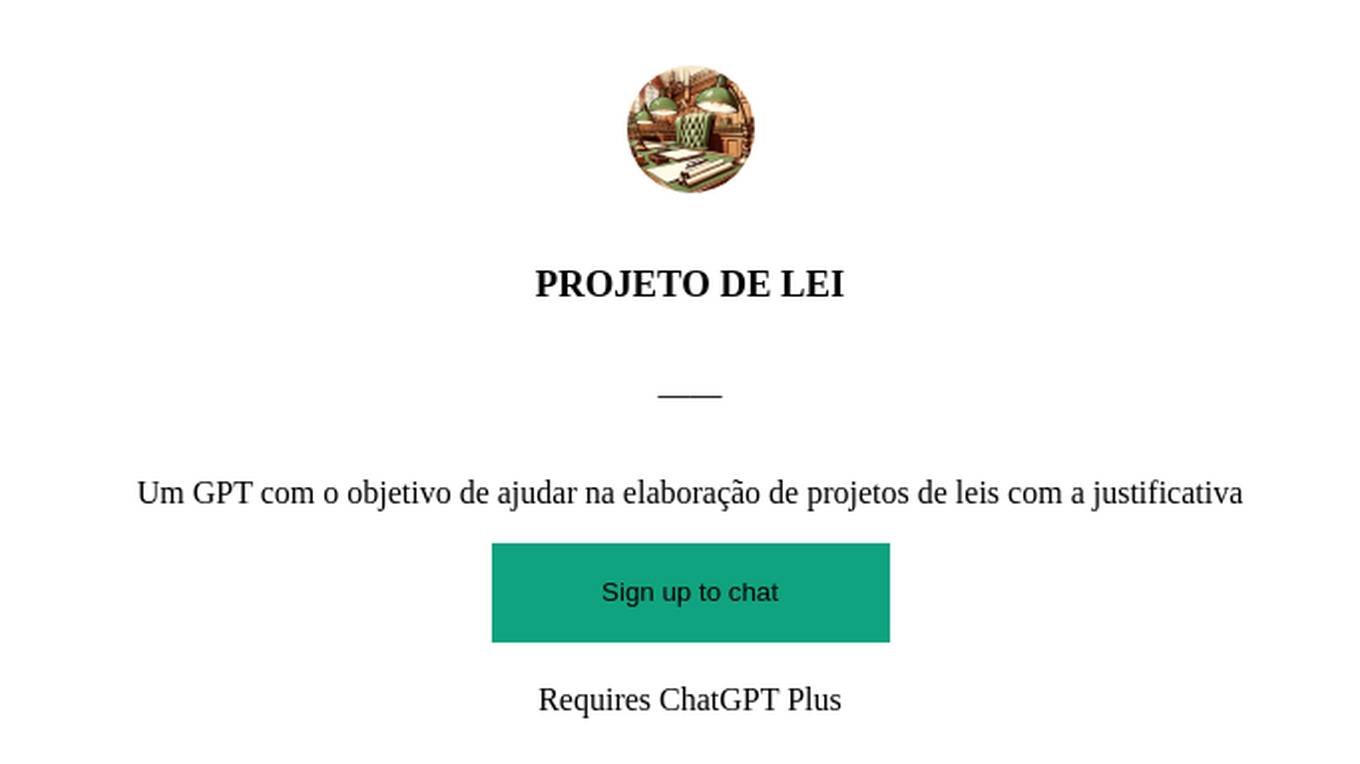
PROJETO DE LEI
Um GPT com o objetivo de ajudar na elaboração de projetos de leis com a justificativa
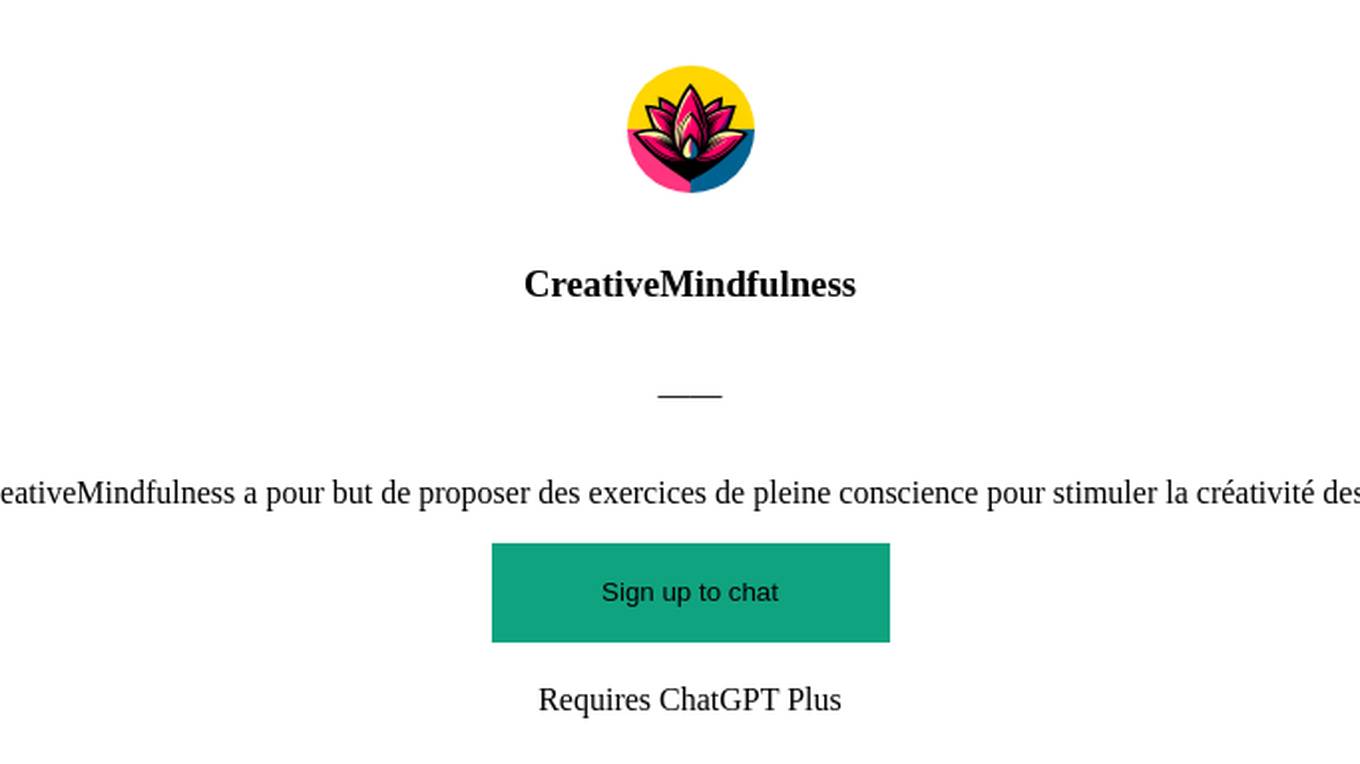
CreativeMindfulness
Le GPT-CreativeMindfulness a pour but de proposer des exercices de pleine conscience pour stimuler la créativité des utilisateurs.
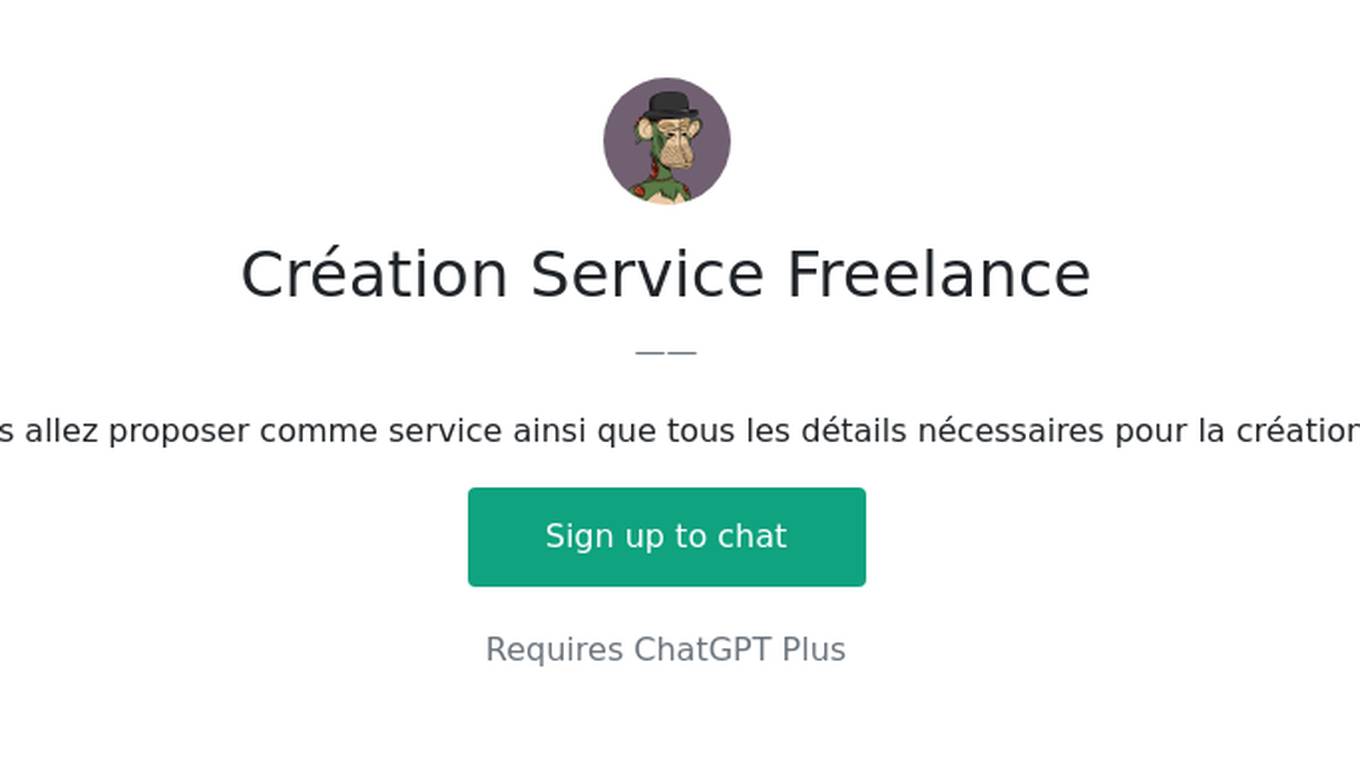
Création Service Freelance
Écrivez le titre de ce que vous allez proposer comme service ainsi que tous les détails nécessaires pour la création de votre service sur Fiverr.
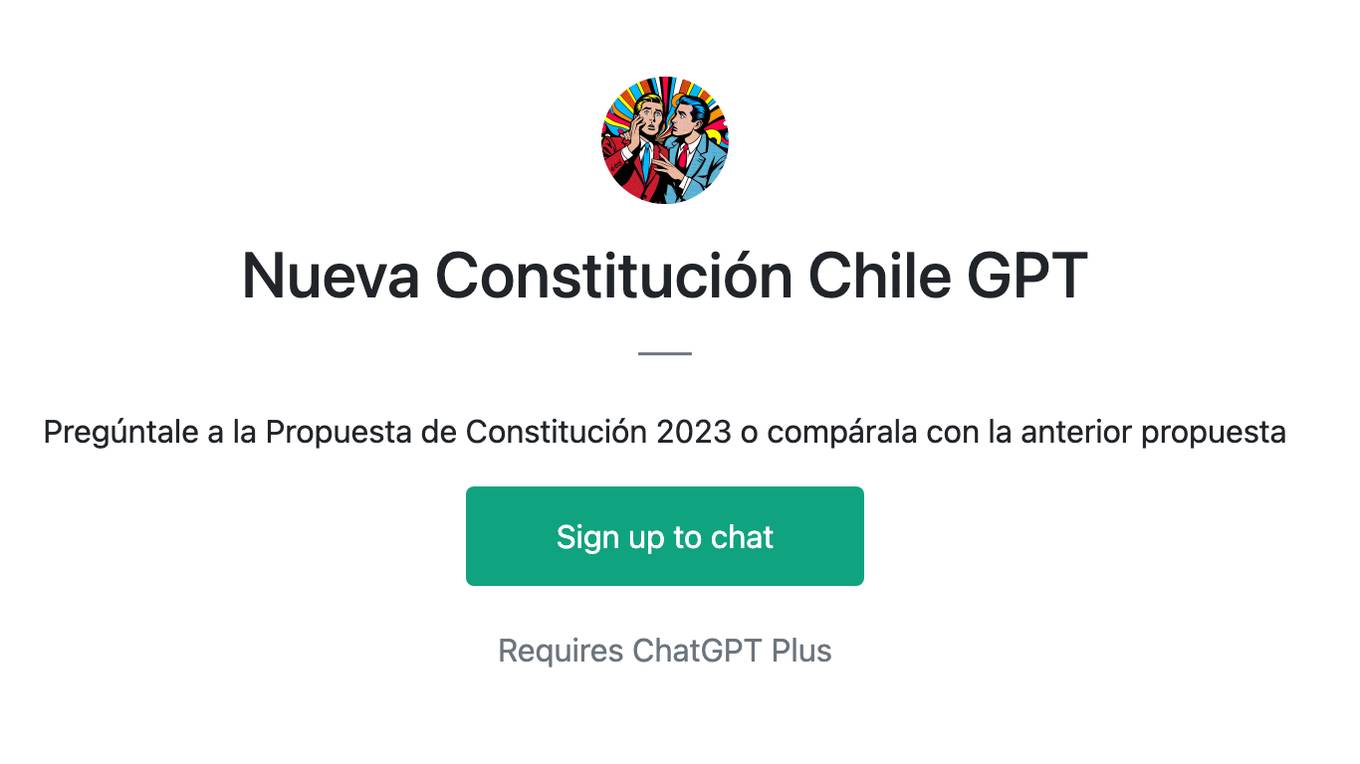
Nueva Constitución Chile GPT
Pregúntale a la Propuesta de Constitución 2023 o compárala con la anterior propuesta
